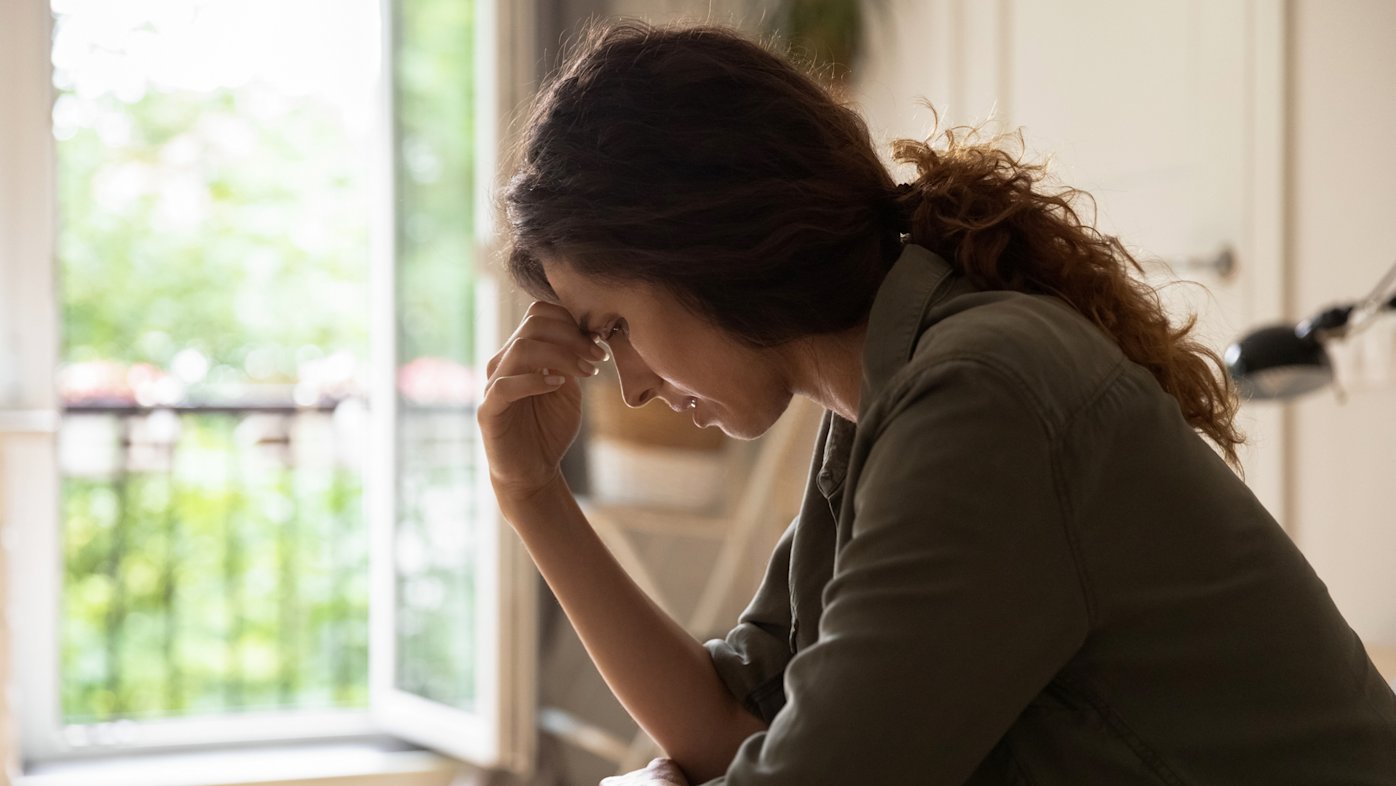
Caregiving and stress: An unfortunate combination
In a survey of more than 1,000 adults who provide unpaid care for an adult loved one, caregiving was found to take a toll on their mental health.
Armida Luna gave her heart to her husband, Juan, a long time ago. When his health deteriorated and he needed a new kidney, she didn’t hesitate to offer one of hers.
However, neither Armida, a clerical assistant in the Imaging Department at James S. Brown Pavilion (formerly called Sharp Memorial Outpatient Pavilion), nor the couple’s children were a match. Instead, their caregivers at the Sharp HealthCare Kidney and Pancreas Transplant Center turned to the National Kidney Registry, which matches donor-recipient pairs across the country and coordinates living donor chains.
In May 2019, Armida and Juan had surgery at Sharp Memorial Hospital as part of a cross-country living donor chain. The chain began with an altruistic donor — someone who donates a kidney to a stranger in need — in Georgia, who ultimately saved five lives. Armida’s donated kidney went to someone in South Dakota, while her husband received his new kidney from a transplant center in Washington.
“Living donor kidney chains give patients with kidney failure a chance at a longer life,” says Tammy Wright, Sharp transplant coordinator. “It’s inspiring and moving to see how grateful the recipients of these organs are throughout this entire process.”
A deep bond grows deeper
Armida and Juan met in their church group. They were friends first, building a strong foundation that transformed into a 35-year marriage with three kids and five grandchildren. Juan, who has a history of diabetes and high blood pressure, was diagnosed with kidney failure in 2018.
More than 91,000 people nationwide are waiting for a new kidney. Some wait up to a decade for a deceased donor match, undergoing dialysis in the meantime or dying during the wait.
Armida knew how grueling dialysis can be, so before her husband got to the point of needing the treatment, she began the lengthy evaluation process for kidney donation. Living donor candidates must complete many tests, but Armida understood the need to make sure she would be healthy living with just one kidney.
“The one thing that kept me going was the hope that he would once again live a normal life,” she says.
Four years later and lots of life to go
Nearly four years since the surgery, Juan is doing very well. He reports that since his transplant, he feels good, has a lot more energy, is less fatigued and considers himself “very blessed.”
“What changed is that I'm able to work normally without being extremely tired and coming home with zero energy,” Juan says. “Getting out of bed in the morning was very hard. Now, I'm able to do normal activities with my family. I'm able to go play golf with my friends.”
His message for people waiting for a transplant: Don’t give up and stay focused. “It will be worth it,” he says.
As for Armida, she reports she feels good — the same, really — since the transplant. “I can't tell I only have one kidney,” she says.
Armida encourages others who are considering living donation to educate themselves on the process and talk to donors about the incredible experience of saving a life. She says it's an amazing feeling to know you are giving someone an opportunity at a better life — the gift of life.
“In my case, I was able to help my husband,” Armida says. “But when I see how good my husband is doing, I think about the person my kidney went to and I hope they are doing just as well as he is.”
Now, Juan and Armida plan to travel and enjoy their family. They are looking forward to their granddaughter graduating high school this year and seeing her play lacrosse in college.
“I thank God my husband got a second chance at life so we can enjoy our family and the people that are a part of our lives,” Armida says. “Every time I look at him, I’m grateful.”
Learn more about becoming a living kidney donor or register as an organ donor with Donate Life America. You can also register as an organ donor when you apply for or renew your driver’s license or ID card.

The Sharp Health News Team are content authors who write and produce stories about Sharp HealthCare and its hospitals, clinics, medical groups and health plan.

Armida Luna is a clerical assistant in the Imaging Department at Sharp Memorial Outpatient Pavilion.
Our weekly email brings you the latest health tips, recipes and stories.